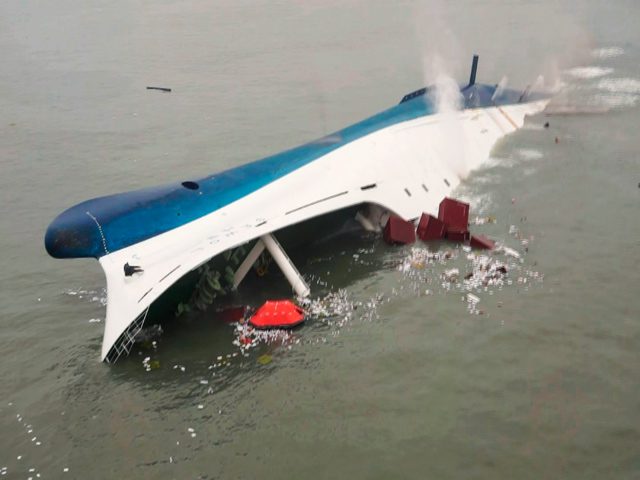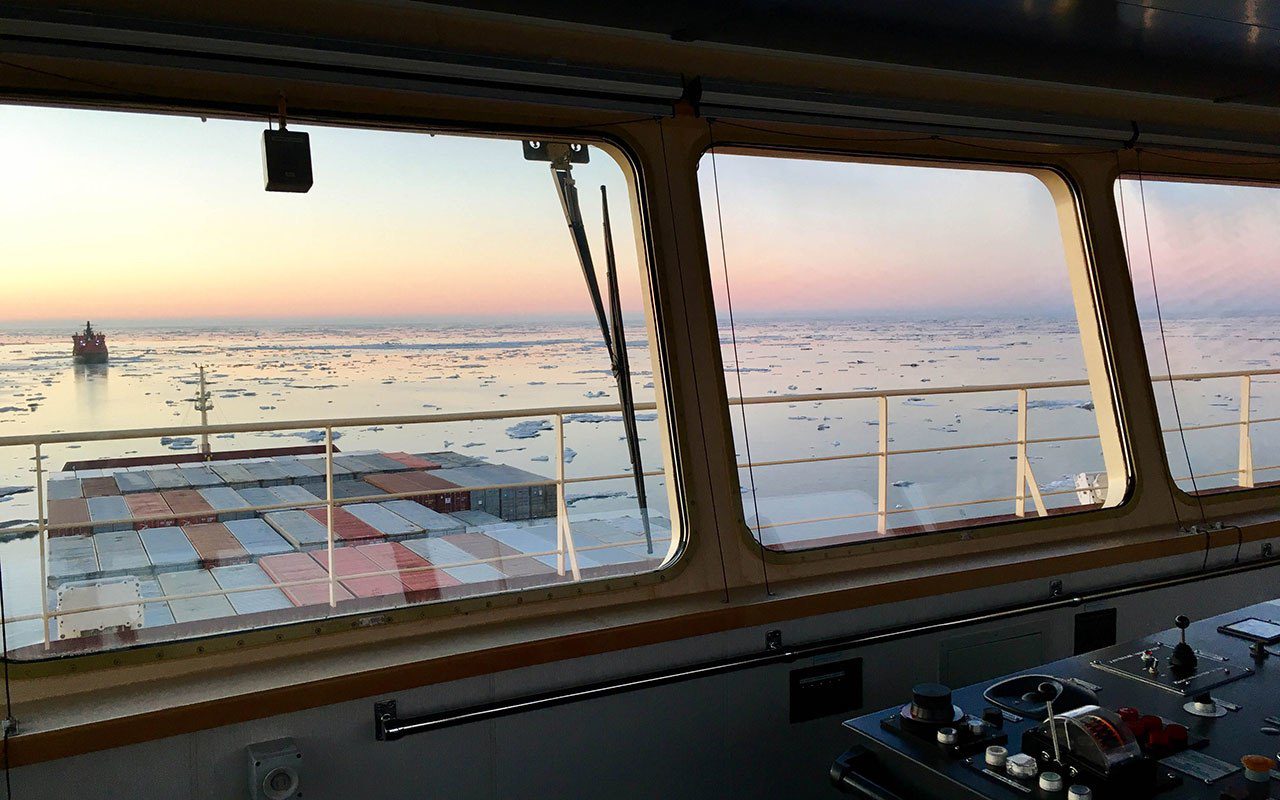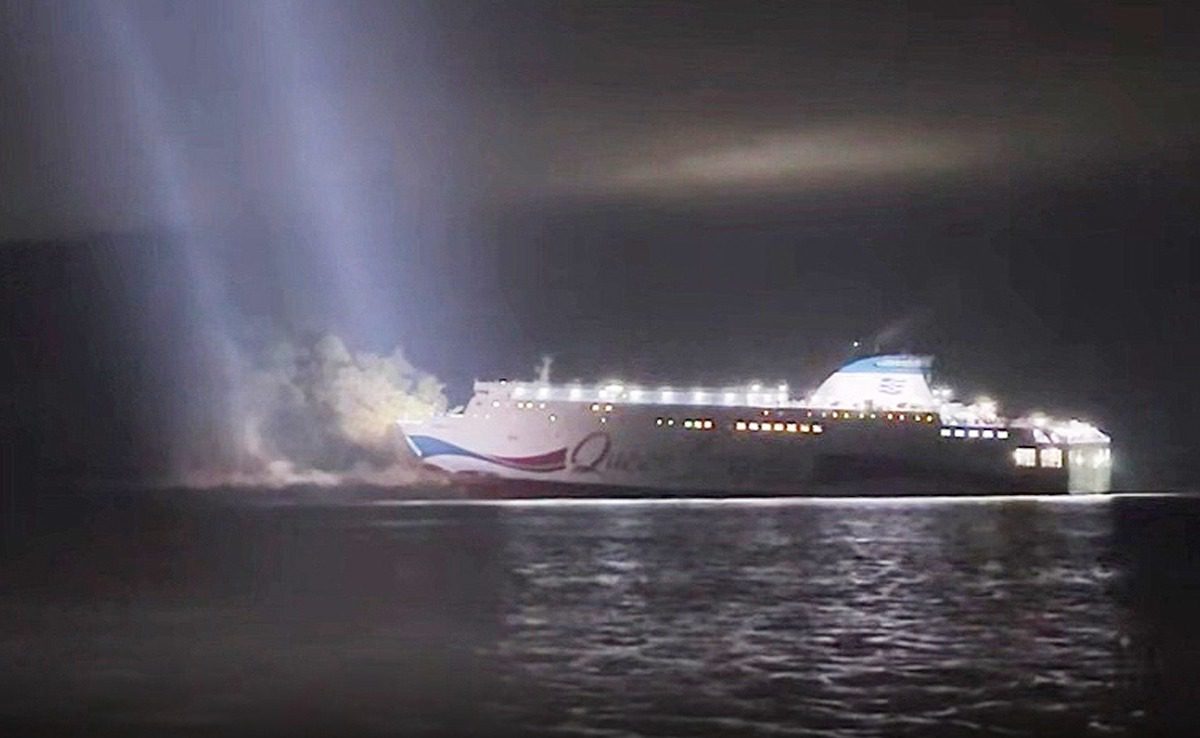A picture of the MV Sewol capsizing, as taken by the Korea Coast Guard on April 16, 2014. Photo: Creative Commons

By Ju-min Park and Jack Kim
SEOUL (Reuters) – Nearly a year after her 16-year-old daughter was among 304 people killed when an overloaded ferry capsized, Park Eun-mi says not much has changed when it comes to safety in South Korea.
“Even after what we’ve been through, I wonder why society doesn’t change, and how people so quickly forget,” said Park, surrounded in her apartment by photographs of her daughter, who is among nine victims of the ferry disaster whose body has yet to be recovered.
Public safety was mostly an afterthought in South Korea’s decades of rampant economic growth, defined by an attitude of “pali, pali,” or “hurry, hurry.”
The Sewol ferry disaster on April 16 last year led to much soul-searching – the majority of the victims were, like Park’s daughter, teenagers on a school outing. The ship was structurally unsound and the rescue operation was widely criticized as botched.
But despite increased public awareness and government efforts to foster a culture of safety, data points to little improvement. The total number of ship accidents in South Korea, for example, rose in 2014 as did the incidence of fires and the number of people killed in them.
Even the government acknowledges its own efforts to improve public safety, including the creation of a massive new 10,000-person ministry, will take years to make a significant difference.
“To ensure safety, we need budget and time … and we need to change the mindset,” Park In-yong, the retired navy admiral who heads the newly formed Ministry for Public Safety and Security, said on Thursday.
The sprawling ministry’s mandate ranges from rescue operations and disaster response to elevator safety.
Skeptics say it is a political fix that merely moves functions around.
“I know even after three years on this job, people still won’t be satisfied,” Park, the minister, said.
On March 30, the government unveiled a “master plan for safety innovation,” which at a cost of 30 trillion won ($27.45 billion) would establish a control center for disaster management, improve response to accidents and highlight the importance of prevention.
President Park Geun-hye, whose government was sharply criticized for its handling of the Sewol disaster, has led a year-long effort to devise comprehensive safety standards and change corrupt practices, but she said this month that the public also needs to do more.
“A truly safe society is possible when the public’s participation in safety issues becomes a fact of life and safety culture becomes instilled in the mindset of the people,” she said.
In a February poll, 54.5 percent of respondents said safety standards and mindsets had not improved since the sinking. In a poll this month, 70 percent of respondents said government safety management had not improved, and 69 percent said they do not feel safer.
MAGNIFYING GLASS
The perceptions could be because of intensified media coverage of accidents and disasters in the aftermath of the Sewol sinking, but data shows public safety is yet to significantly improve.
In one especially grisly incident, 16 people at an open-air pop concert in October plunged more than 10 meters (33 feet) to their deaths when the cover of a ventilation shaft they were standing on gave way; eleven others were hurt, many seriously.
In five of the eight months after the sinking, the number of fires increased from the same month a year earlier, Safety Ministry data shows.
Traffic accidents increased during 2014 from a year earlier, although fatalities fell from 5,092 to 4,762.
Jung Joon-pyo, a political science professor at Yeungnam University, said changing safety behavior and practices is difficult because people tend to fall back into earlier habits.
“When we have people dead, there’s only so much you can do, and they tend to be stop-gap measures because there’s a sharp emotional element,” he said.
($1 = 1,092.9600 won) (Additional reporting by Sohee Kim and Seungyun Oh; Editing by Tony Munroe and Raju Gopalakrishnan)
© 2015 Thomson Reuters. All rights reserved.
Editorial Standards · Corrections · About gCaptain
This article contains reporting from Reuters, published under license.

 Join The Club
Join The Club











